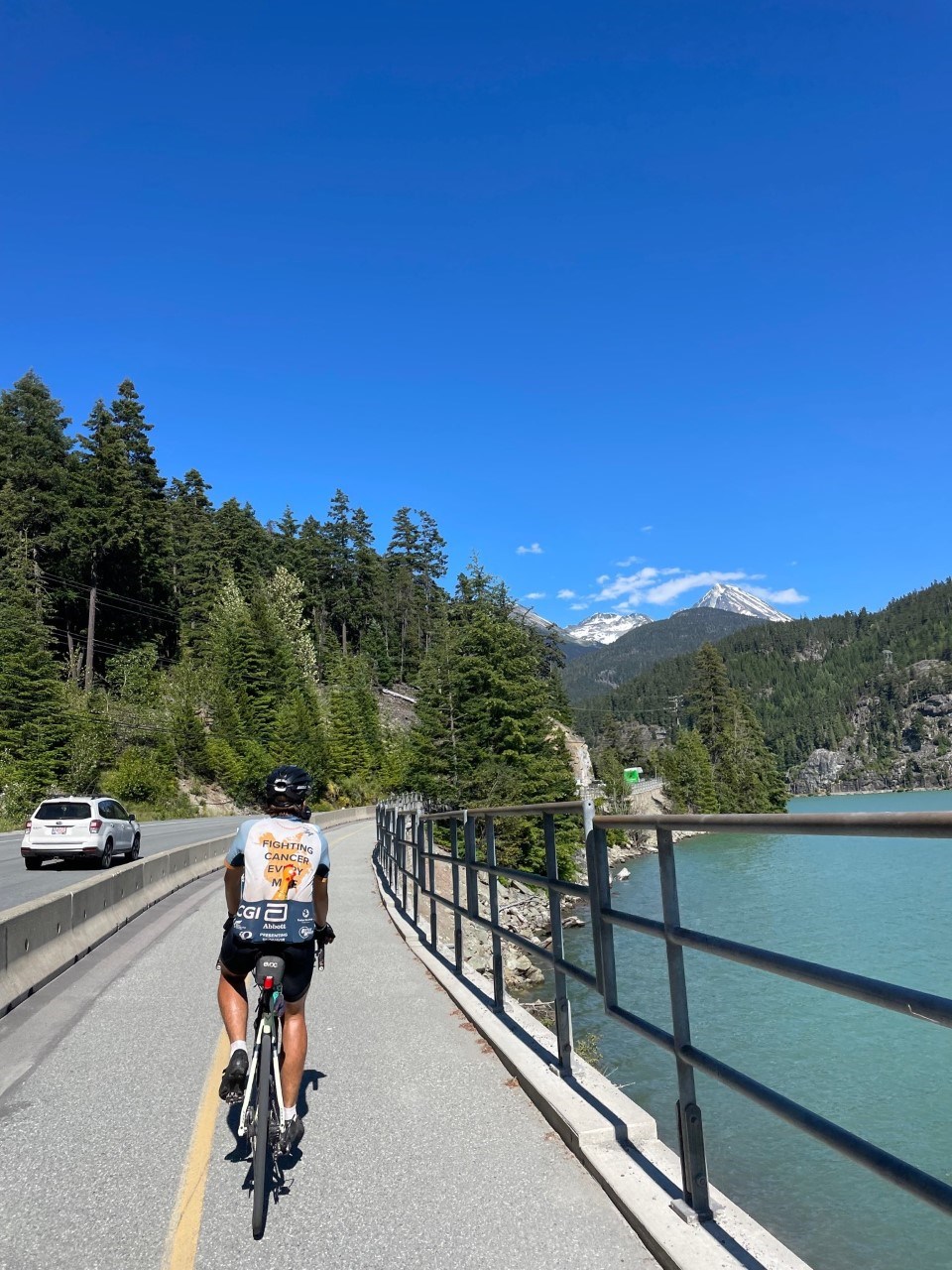To most people, travelling the approximately 6,500 kilometres from Austin to Anchorage by bike likely doesn’t sound like a particularly good time. But Mason Schlechte was looking forward to making the trek in 2020 in honour of a good friend’s family, as part of Texas 4000, an annual charity ride that sees University of Texas students raise funds and awareness for the fight against cancer.
Schlechte never made it to the starting line, after tragically passing away in 2019.
“I kind of applied to finish what he started and take on his mission; ride for the family friends he had who were affected by cancer and showed him so much kindness when he was growing up,” explained Schlechte’s friend and former housemate, Anuj Mocherla. “I thought it was a really cool way to honour his memory.”
That’s just one of “a multitude of factors” that motivated 23-year-old recent University of Texas graduate Mocherla to join the Texas 4000 team. The group of more than 45 students are making their way to Alaska for the first time in three years, after the COVID-19 pandemic and border restrictions hindered the world’s longest annual charity bike ride from sticking to its usual route.
Mocherla and his teammates are now more than 50 days into the 70-day ride. They passed through Whistler on July 19, joined for part of the ride by members of the Whistler Cycling Club, ahead of their scheduled arrival at the finish line in Anchorage on Aug. 12.
Along the way, the group has also been hosting educational outreach sessions and programming that lines up with the organization’s three pillars of hope, knowledge and charity.
“That’s the thing that I think really draws a lot of us to this is that you’re not just riding a bike, getting off the bike, sleeping and starting again the next day. You’re interacting with communities, you’re stopping at cancer research centres, you’re going through areas that are so afflicted by cancer,” said Mocherla over the phone from Vancouver, where the team had just wrapped up a tour of the BC Cancer Centre.
“You also get to sit down and talk to people and listen to their stories, and take those with you along the ride the entire 70 days and share those with other people, and take lessons from that. And that’s what really makes what we‘re doing so special.”
Now in its 19th year, Texas 4000 has raised nearly US$13 million to date for the fight against cancer. In addition to raising at least $4,500 each (Mocherla alone has so far raised more than $10,000) riders participate in an 18-month leadership development program that entails training, volunteering in the community and planning out all the logistics of the journey, from finding places to stay—typically churches, community centres and people’s homes—to scheduling meals and outreach sessions.
In light of “the significant drop in preventative cancer screenings” since the pandemic began, Texas 4000 “is even more focused on spreading our cancer awareness and prevention message,” said executive director Scott Crews in a release.
“While the team shares hope by riding for those touched by cancer and charity through our donations to cancer research and support services, we believe spreading knowledge on cancer prevention will help increase preventative cancer screening numbers and save people’s lives.”
That said, the inspirational cause doesn’t make the physical challenge of cycling thousands of kilometres any less of a feat.
“The most I rode my bike before joining Texas 4000 was me being 12 years old and riding to my friend’s house,” explained Mocherla with a laugh.
“When we got these bikes in January, for a lot of us it was the first time that we were clipping in, wearing bib shorts, wearing jerseys … It’s been really rewarding physically to start in January from the ground up, doing a 10-mile ride and feeling like I need to sleep for three hours afterwards, to now being able to do back-to-back 70- to 100-mile rides, interacting with the community after coming off a ride; immediately talking to someone and not feeling like you need to just go to sleep and eat some food.”




